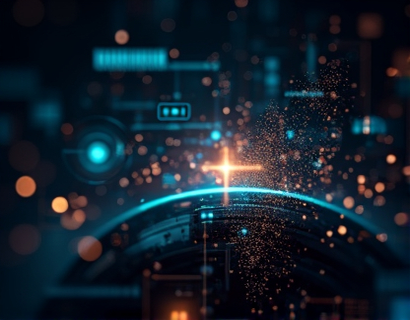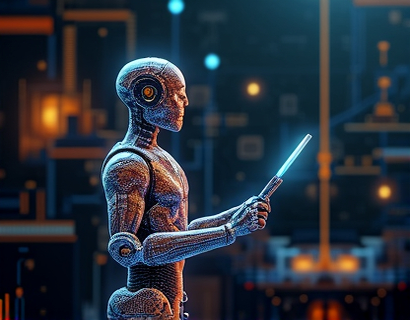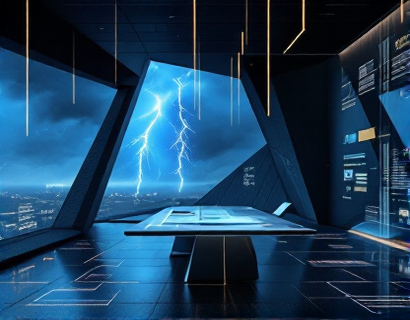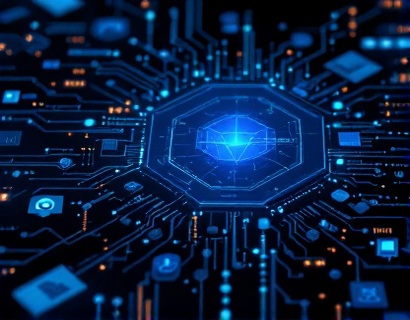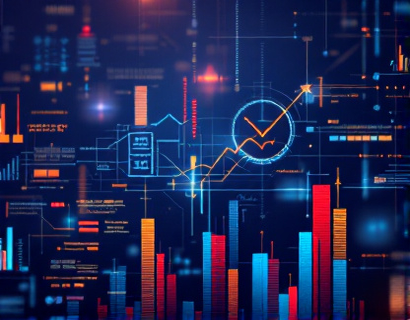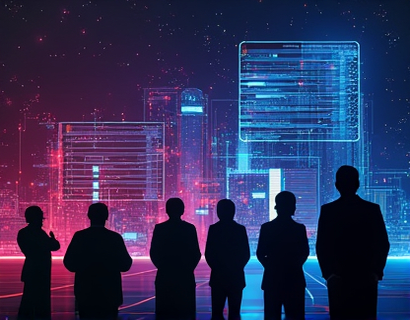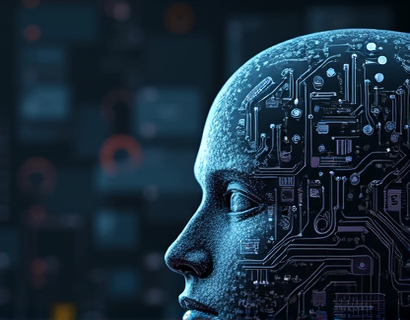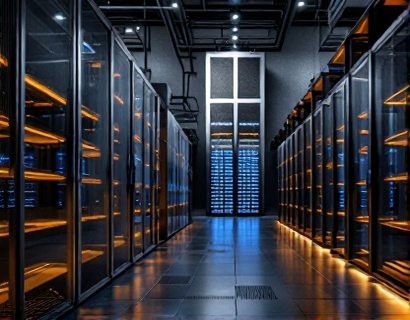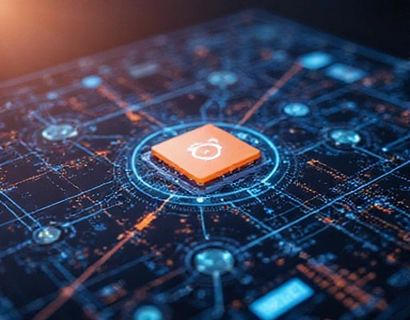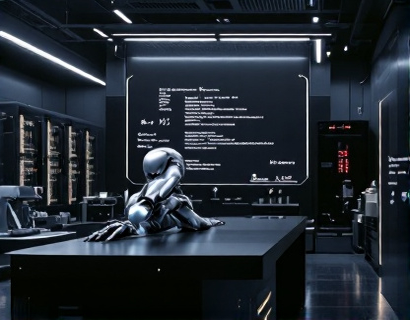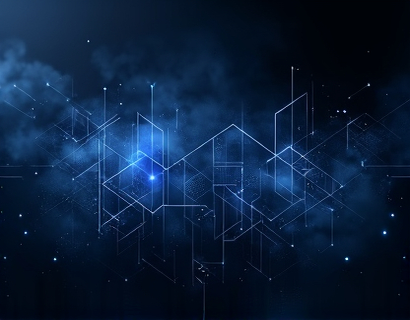Decentralized DAOs: Transforming Web3 Governance Through Community Empowerment and Innovation
In the rapidly evolving landscape of Web3, decentralized autonomous organizations (DAOs) stand as a pivotal force, redefining governance and community engagement. These entities leverage blockchain technology to create self-governing systems where decision-making power is distributed among community members. This shift marks a significant departure from traditional hierarchical structures, fostering an environment of enhanced collaboration, transparency, and scalability in protocol management.
The concept of decentralization is not new, but its application through DAOs brings a fresh dimension to Web3 governance. By removing central authorities, DAOs enable a more democratic and inclusive approach to managing digital assets and protocols. This transformation is crucial for the growth and sustainability of decentralized technologies, as it aligns the interests of users, developers, and stakeholders, ensuring that the ecosystem evolves in a direction beneficial to all participants.
Understanding Decentralized Autonomous Organizations
A DAO is essentially a digital organization governed by rules encoded on a blockchain. These rules dictate how the organization operates, including decision-making processes, funding mechanisms, and dispute resolution. The key feature of a DAO is its autonomy, achieved through smart contracts that automatically execute predefined actions when certain conditions are met. This automation reduces the need for intermediaries, lowering costs and increasing efficiency.
The genesis of DAOs can be traced back to the Ethereum platform, which provided the necessary tools for creating and deploying smart contracts. The first notable DAO, the DAO Experiment, emerged in 2025, though it faced significant challenges, including a major hack that highlighted the need for robust security measures. Despite this setback, the concept gained traction, leading to the development of more sophisticated and secure DAOs.
Empowering Communities Through DAOs
One of the most significant impacts of DAOs is their ability to empower communities. By giving members a stake in the governance process, DAOs ensure that decisions reflect the collective will of the community. This empowerment fosters a sense of ownership and responsibility, encouraging active participation and innovation. Community members can propose, vote on, and implement changes, creating a dynamic and responsive governance model.
For instance, in a DAO managing a decentralized finance (DeFi) protocol, token holders can propose new features, such as improved user interfaces or enhanced security protocols. The community votes on these proposals, and once a threshold is reached, the changes are executed automatically by the smart contract. This process not only accelerates innovation but also ensures that the protocol remains aligned with the needs and preferences of its users.
Enhancing Collaboration and Transparency
DAOs promote collaboration by providing a platform where diverse stakeholders can work together towards common goals. The transparency inherent in blockchain technology ensures that all transactions and decisions are recorded and visible to all participants. This level of transparency builds trust and accountability, reducing the risk of fraud and mismanagement.
For example, in a DAO managing a decentralized marketplace, all transactions, including asset exchanges and fee distributions, are logged on the blockchain. Community members can audit these records at any time, ensuring that the marketplace operates fairly and efficiently. This transparency also encourages more users to join and contribute, as they can verify the integrity of the system.
Scalability in Protocol Management
Scalability is a critical challenge in the Web3 ecosystem, and DAOs offer a scalable solution by distributing governance tasks across a network of participants. Instead of relying on a central authority, DAOs leverage the collective intelligence of the community to manage and scale protocols. This distributed approach not only enhances resilience but also enables faster and more agile responses to emerging challenges.
Consider a decentralized storage network managed by a DAO. As the network grows, the DAO can introduce new nodes and adjust storage allocation based on community input. This flexibility ensures that the network can scale efficiently without bottlenecks, maintaining performance and reliability. The DAO's governance structure allows for continuous optimization, adapting to the evolving needs of the network and its users.
Case Studies: Successful DAOs in Web3
Several DAOs have demonstrated the potential of this governance model in various Web3 applications. One prominent example is the Aragon DAO, which provides a platform for building and managing other DAOs. Aragon enables organizations to create custom governance structures, manage token distributions, and facilitate decision-making processes. Its success lies in its flexibility and user-friendly interface, making it accessible to both technical and non-technical users.
Another notable DAO is the MakerDAO, which governs the stablecoin DAI in the DeFi space. MakerDAO's governance allows token holders to propose and vote on changes to the protocol, such as adjusting collateral requirements and introducing new stablecoins. This community-driven approach has been instrumental in maintaining the stability and reliability of the DAI, despite market fluctuations.
Challenges and Considerations
While DAOs offer numerous benefits, they also come with challenges that need to be addressed. Security remains a primary concern, as smart contract vulnerabilities can lead to significant losses. The 2025 DAO hack highlighted the importance of rigorous testing and auditing to prevent such incidents. Additionally, the technical complexity of DAOs can be a barrier for some users, necessitating educational initiatives to promote broader adoption.
Legal and regulatory frameworks are another area of concern. As DAOs operate across borders, navigating varying legal environments can be complex. Clear guidelines and supportive regulations are essential to ensure that DAOs can thrive without undue restrictions. Community involvement in shaping these frameworks can help create a more favorable environment for decentralized governance.
The Future of Web3 Governance
The adoption of DAOs is poised to revolutionize Web3 governance, driving innovation and community empowerment. As more projects embrace this model, we can expect to see a more interconnected and resilient digital landscape. The key to success lies in continuous improvement, addressing security and accessibility challenges, and fostering a collaborative ecosystem where all stakeholders can contribute to the growth and sustainability of decentralized technologies.
Joining the DAO movement means being part of a transformative journey. By participating in the governance of Web3 protocols, individuals can play a crucial role in shaping the future of the digital world. The potential for innovation and positive change is immense, and the community's collective effort is what will drive this vision forward.




